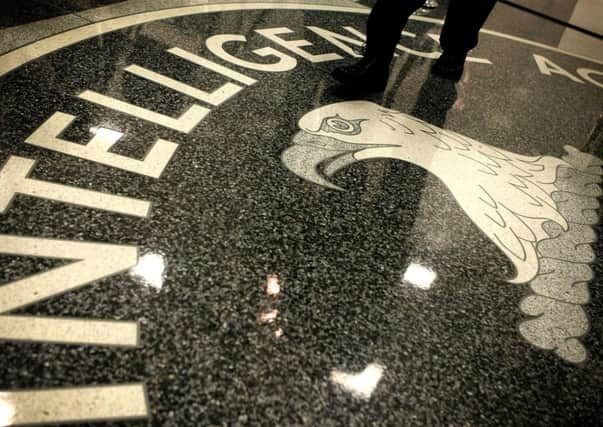Leaders: No easy answers on US rendition flights


Our national force is already engaged in an investigation into the use of Scottish airports in the transfer of terror suspects and this new information would appear to be relevant.
So-called rendition flights are said to have stopped off at six Scottish airports, without the knowledge of the national authorities, and it is crucial that the investigation into how this was allowed to happen is supported.
Advertisement
Hide AdAdvertisement
Hide AdOnly by fully understanding how Scottish airports could have been used in the transfer of suspects to locations where they were then tortured can we ensure it is not allowed to happen again.
Lord Advocate Frank Mulholland was quite right to say yesterday that the use of torture cannot be condoned. It is, as he stated, against international law.
The CIA has previously sought to defend itself against allegations that it brutalised prisoners by insisting any actions its operatives had taken was in the interest of global security. The Senate’s report is critical of this defence, describing the CIA’s claims as inaccurate.
It is quite clear that this is an issue which not only requires investigation but debate, however uncomfortable that process may be.
We can be in no doubt that Islamist terrorism is a real threat to the United Kingdom: the murder of 52 people by four suicide bombers in London on 7 July, 2005 stands as a permanent reminder of that.
Nor is Scotland – as it was during the IRA’s long campaign – exempt from danger, as a thwarted attack on Glasgow Airport in 2007 proved.
And here we get to the difficulty at the heart of the police investigation. We expect those who protect us to behave to the highest possible standards, and yet theirs is a world that doesn’t resemble our own. It is easy to condemn the behaviour of some agents and yet we would all surely hope that those in the field would do whatever was necessary to prevent terrorist atrocities taking place.
The Scottish Government has, until now, kept a low profile in matters of geopolitics, but by involving the national police force it may find itself publicly at odds with the United States.
Advertisement
Hide AdAdvertisement
Hide AdThere are sensitivities, too, in the intelligence-sharing relationship between the UK and Scottish governments which must not be damaged by the investigation.
The SNP has made much capital in the past of its opposition to the actions of the US and the UK after the 9/11 attacks.
But this investigation cannot be the basis for political point-scoring. Instead, it must be carefully handled and have a clear objective.
We welcome this investigation. But none of us should expect easy answers.
Future of trams needs careful thought
THE chairman of the inquiry into the Edinburgh trams project has asked members of the public and business owners to describe its impact on their lives. We hope Lord Hardie has plenty of time, because there must be tales of woe aplenty.
The decision to bring trams back to the streets of Edinburgh led to a costly, chaotic building project that ran three years late and went £200 million over budget. And when, finally, the first tram set off, it was along a route much truncated from that first envisioned. With so much money already sunk into the project by the time it came off the rails, there was little option but to continue via compromise, or kiss goodbye to the initial hefty investment.
So it is hugely important – given the cost to the Scottish taxpayer – that we get some answers about what went wrong.
This might, however, be nothing more than a process of catharsis if it were not for the fact that an extension of the tram route to Leith looks to be a possibility.
Advertisement
Hide AdAdvertisement
Hide AdA great many businesses – particularly bars, shops and restaurants – which sit on the existing route reported serious damage to their takings during construction, while residents have their own bleak stories to tell.
The idea of the tram line extending to Leith has its merits and may appeal to commuters and the larger businesses in Edinburgh city centre, but the impact of construction on those living and working alongside a future route may be too high a price to pay.
Those with dreams of a larger tram system should listen very carefully to the evidence of those who experienced the greatest impact during the construction of the existing lines.